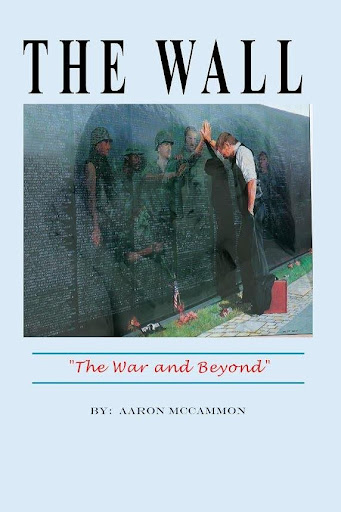In The Wall (The War and Beyond), author Aaron McCammon delivers a post-apocalyptic war saga, offering readers a thoughtful and raw exploration of morality in the midst of chaos. Set in a world shaped by destruction and survival, the novel forces us to grapple with a deeply uncomfortable truth: in war, heroism and villainy are just the two sides of one coin.
From the outset, McCammon constructs a world where traditional moral compasses falter. The titular “Wall” is not just a boundary between spaces; it’s a metaphor for the emotional and ethical divides created by war. Characters are thrown into a reality where survival requires compromise and morally grey choices.
In this bleak setting, The Wall (The War and Beyond) invites readers to question everything they think they know about right and wrong. Who is the enemy when everyone is broken? What does justice look like when all systems have collapsed? McCammon does not offer easy answers, and that’s precisely what makes the novel so compelling.
Heroes with Blood on Their Hands
The protagonists in The Wall are not sanitized saviors. They are complex individuals, scarred by their decisions, their losses, and the grim tasks they’ve had to undertake. These aren’t the caped crusaders of comic book fantasy; they are men and women trying to maintain a shred of humanity in a world that punishes compassion.
One of the most powerful elements of McCammon’s storytelling is his refusal to let us off the hook. Just when you start rooting for a character, he reveals a truth or past decision that shakes your moral footing. This is intentional. War, he reminds us, doesn’t offer clean consciences. It offers survival, sometimes at the cost of your soul.
Villains with a Cause
Equally compelling are the antagonists, who aren’t purely evil but often born from the same suffering as the heroes. McCammon masterfully humanizes them, showing how ideology, trauma, and desperation can twist noble intentions into horrific acts. Rather than cartoonish monsters, the villains in The Wall often reflect the dark mirror of the heroes themselves.
This moral ambiguity is central to the novel’s power. It invites us to reflect on the nature of evil, not as something innate, but as something that can grow in anyone given the right (or wrong) circumstances.
The Grey Areas That Define Us
What makes The Wall (The War and Beyond) stand out in the crowded genre of dystopian fiction is its unwavering focus on ethical nuance. McCammon doesn’t glorify war; he exposes it. He shows us how easily lines can be crossed, how intentions can be warped, and how even good people can become instruments of horror.
This theme resonates powerfully with our real-world history and present. From global conflicts to political polarization, the book asks us one core question: When war forces us to choose between terrible options, can there ever be a truly moral choice?
Reflection in Ruins
Reading The Wall is not a passive experience. It demands that we examine our own beliefs about justice, vengeance, and what it means to be “good” in a world gone wrong. In portraying the ethical fog of war with such stark honesty, McCammon is actually holding up a mirror.
As readers, we leave the book not with answers, but with better questions. And perhaps that’s the point. In the ruins of war, it is not certainty that defines us, but the courage to confront the grey.Grab your copy today.
 WhatsApp Us Now
WhatsApp Us Now








